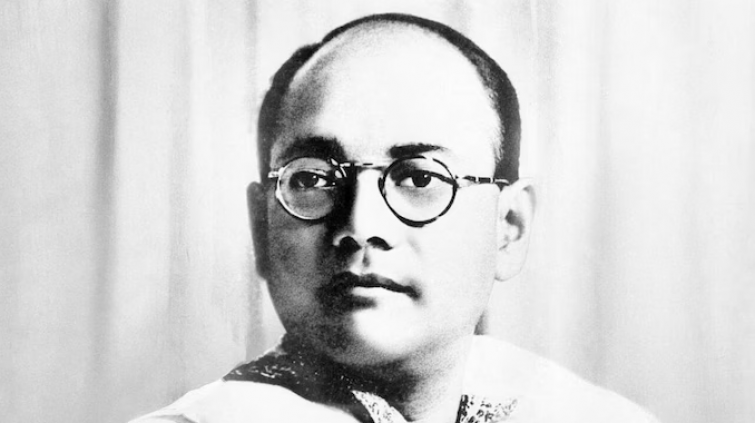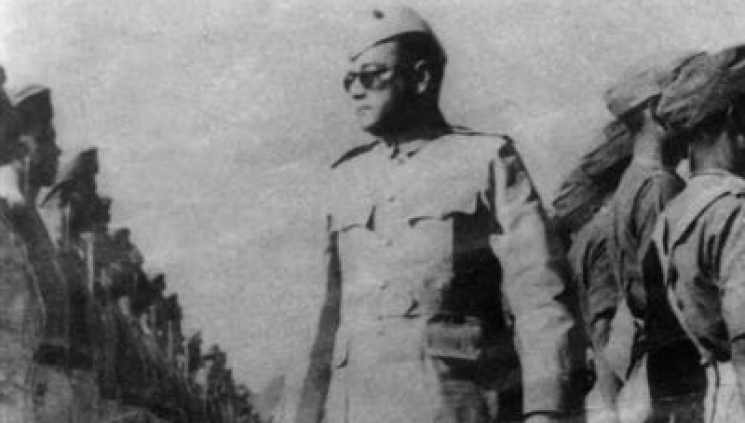Subhash Chandra Bose, India’s freedom fighter who played a major role in the freedom struggle is remembered today on his birth anniversary. The day is celebrated as Parakram Diwas, an occasion that honors the indelible contributions of the leader towards the country. He is a symbol of patriotism till this day continuing to inspire and resonate with millions.
A life short lived, with a revolutionary spirit dedicated for the freedom of the nation. Netaji ignited the same virtues among the fellow countrymen which exist even today. Subhash Chandra Bose was a visionary, a statesman and the greatest patriot of Bharat Mata who ‘redefined Indian Independence movement’.
Bose’s slogan, “Tum mujhe khoon do mein tumhe aazadi doonga…” (Give me blood, and I shall give you freedom) instills patriotism and determination for the motherland among the masses breaking all kinds of cultural, religious and other divides. His leadership of the Indian National Army (INA) during the World War II added a new chapter to India’s struggle for Independence and sovereignty.
Here are some facts and achievements of Netaji that every Indian must know:
- Subhash Chandra Bose secured fourth rank in the Indian Civil Services (ICS) Examination in 1919. He declined doing service under the British colonial rule and chose to resign in 2021.

- Subhash Chandra Bose became the President of the Indian National Congress (INC) twice. Following the ideological differences with Mahatma Gandhi, Bose called for the establishment of the Forward Bloc in 1931. It was more of a radical approach to accelerate action against the colonial rule. Earlier in 1923, Bose also served as the President of the All India Youth Congress which was a big achievement in those days. He had the spark and the leader potential since the beginning, serving as the CEO of Calcutta Municipal Corporation in 1923 and as the Mayor of Calcutta.
- In 1943, Subhash Chandra Bose declared the establishment of a provisional government which is considered to be a bold decision and the foundation for a ‘free India’. The government was recognized by Germany, Japan and Italy. Bose primarily advocated for socialist policies.

- Bose’s leadership as the Commander-in-chief of the INA was commendable in the era of World War. Known as the Indian National Army or the Azad Hind Fauj, the army gave a good fight to other armies. With the support of Japan, INA fought against the British forces. During this period, Netaji was also kept under house arrest by the Britishers, which he escaped and travelled to Germany and Japan.
- The establishment of Azad Hind Radio accelerated the freedom movement. The radio operated from Germany, transmitting information and slogans that added to the enthusiasm among the freedom fighters.
- Bose’s book ‘The Indian Struggle’ is an outstanding representation about the India between 1920 and 1942. It throws a light upon the British rule and Indian Independence movement during these years. The British Government banned the book.
The death of Subhash Chandra Bose still remains a mystery for the world. While some theorists still claiming that he is still alive and is even seen in the country after Independence. Though, it was reported that Bose died in a plane crash in 1945.
Amidst all the speculations, Bose is alive in a million hearts who are inspired to serve the country. His principles continue to lead us for the betterment of India and its people. Netaji’s efforts shall never go in vain…the shaurya and parakram shall be ignited in young individuals!
As propounded by Netaji himself, “One individual may die for an idea, but that idea will, after his death, incarnate itself in a thousand lives.”
_6791de9707918.jpg)

